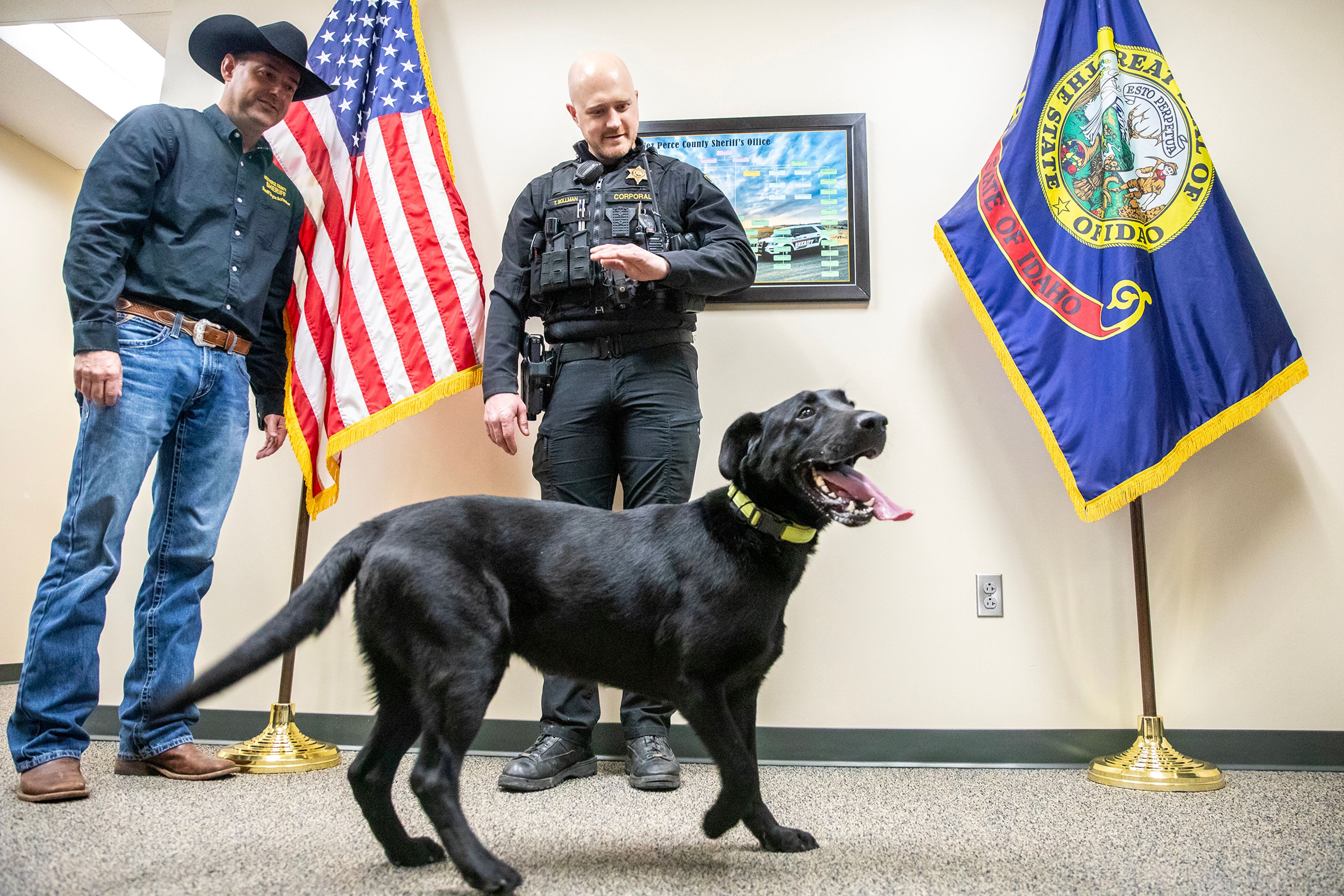Nez Perce County deputy: Let the dogs work
Interfering with law enforcement canines can result in charges, as a recent example shows
A recent example shows that although law enforcement K9s are dogs, thinking of them as regular dogs can get you in trouble.
People are mostly familiar with the rule of not petting police dogs, but it’s not the only one.
Preventing a police dog from doing its job isn’t just a bad idea, it’s also against the law. The resulting charge can be compared to obstruction of law enforcement, said Nez Perce County Sheriff’s Office Chief Deputy Mike Rigney.
“Remember, they’re an extension of law enforcement — they’re the same thing,” he said.
Idaho has a charge for when a person with no legal justification interferes or obstructs a law enforcement dog by teasing, agitating or harassing the animal while it’s performing its duties.
There’s also a charge if a person throws an object at or strikes a dog. Both are misdemeanors with a maximum penalty of a year imprisonment as well as a $1,000 fine.
And it’s a felony when someone injures or kills a police dog. That charge is punishable by a maximum of five years as well as a $10,000 fine.
If the person is convicted, he or she can be ordered to pay veterinary bills, replacement costs if the dog is killed or disabled and the salary of the law enforcement officer any time services were lost to the agency, according to the Idaho statute.
“There’s a whole bunch of different scenarios people can do to throw the dog off,” Rigney said.
Rigney said charging someone with these crimes isn’t common, but it can happen if the situation is warranted.
“There’s a lot of things that have to line up,” Rigney said.
One of the aspects to the charge is that the person has to do it with intent. The K9 handler makes the decision to charge a person if the actions impeded the dog’s ability to do its job, Rigney said.
A recent example occurred last weekend.
Idaho State Trooper Timothy Myers at 12:45 a.m. Saturday observed a vehicle fail to stop at a stop sign when leaving the Clearwater Casino parking lot on U.S. Highway 95.
The trooper stopped the vehicle and asked for an additional unit to respond. Nez Perce County Cpl. Tyler Bollman arrived with his K9, Kobe, a few minutes later, according to court documents.
Kobe was conducting an open-air sniff, which is when the K9 sniffs the air around the vehicle.
Bollman told Myers that the driver was allegedly revving his engine and playing music loudly when Bollman was trying to go in front of the vehicle.
Bollman said that for safety reasons he wasn’t going to have Kobe go in front of the vehicle, and the noises were distracting Kobe, according to court documents.
Myers later arrested the driver for willfully interfering with a police K9, a misdemeanor. Bollman then conducted an open-air sniff with Kobe, who didn’t alert to any illegal substances, according to court documents.
Even though a dog is trained, it can still be distracted or feel unsafe and can therefore be unable to do its job, Rigney said.
Of course, if the dog is off-duty and at an event to meet and greet the public, pets and attention can be welcome. But on duty, Rigney said the main thing is to “let the dogs work.”
Brewster may be contacted at kbrewster@lmtribune.com or at (208) 848-2297.









